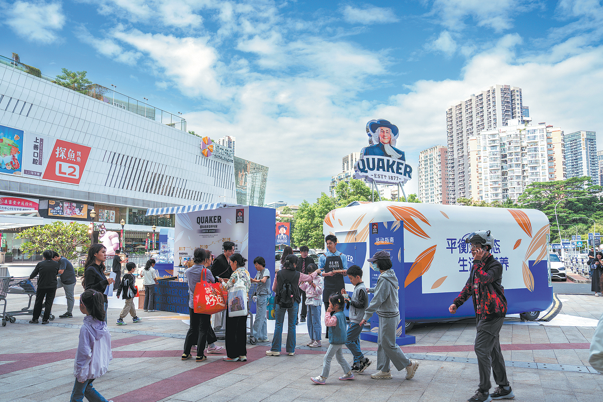Shanghai fine-tunes tourism blueprint City may soon offer inbound shoppers tax refunds

After successfully hosting the World Expo last year, Shanghai is now charting plans to transform itself as an international tourist center along with the move to become a global financial and maritime center.
The city is planning to attract more tourists by offering tax refunds for purchases made by inbound shoppers including those from Taiwan, Hong Kong and Macao, say officials from the city's tourism bureau. According to the officials, the tax rebate plan would be similar to the one introduced in South China's island province of Hainan.
At the same time the city will also increase its spending on major projects that will fuel tourism. Shanghai is likely to spend 40 billion yuan (4.44 billion euros) during the 12th Five-Year Plan (2011-2015), on 10 major tourism projects including the Disneyland project in Pudong district.
"The tax rebate plan is still under research and discussion," says Cheng Meihong, deputy chief of the Shanghai Tourism Bureau, without disclosing further details.
However, Chen Yuxian, deputy head of the industry supervision department of the Shanghai Municipal Commission of Commerce, says that certain stores in Pudong district and Hongqiao area, the city's new central business district, are likely to be selected as the first batch of stores where the tax refunds would be made available.
"Since the central government has already given the green light for such a program in Hainan, there is no reason why we cannot get an approval," he says.
The tax refund plan, however, is not something that is new. Shanghai had sought permission for giving tax rebates to inbound shoppers in 2005. The application failed to get approval in the State Council, says a report from the Shanghai-based Dongfang Daily.
The tax rebate policy for inbound tourists was introduced in Hainan province on Jan 1 this year. Customs officials in the provincial capital Haikou say they have received 129 tax rebate applications involving purchases of around 465,300 yuan so far. The amount, however, is widely believed to be less than expectations.
According to the policy, inbound shoppers can get an 11 percent rebate if they purchase goods worth more than 800 yuan from the three designated stores in the cities of Sanya and Haikou. The Haikou Customs gave out tax rebates of 50,800 yuan in January.
Guo Yingzhi, professor of the tourism department at Fudan University, says that Shanghai presents a better case for tax rebates than Hainan.
"The commercial environment in Shanghai is more mature. Statistics have shown that more than half of the inbound and domestic tourists in Shanghai shop at local stores, while the percentage who do so in Hainan is rather low, as most people go there only for sightseeing," says Guo.
"Tax rebates are a popular and effective method for boosting local consumption, especially in tourist cities. If the same benefit is extended to Shanghai, it will certainly boost the local economy," she says.
But Guo feels that the tax rebate policy should cover more stores in Shanghai as the city has quite a few business centers.
Gu Xiaoming, a Fudan University-based sociologist, however, feels that the tax rebate policy alone is not enough to boost tourist purchases in Shanghai.
"The city needs to have more luxury brands and daily-use products in its shops, guarantee the quality of the products and improve after-sales service so that it can compete with other shopping destinations like Hong Kong and Japan," he says.
According to the 12th Five-Year Plan of Shanghai, the city's annual tourism income is expected to reach 520 billion yuan by 2015, while the number of inbound tourists will exceed 10 million, with an annual increase of 4.6 percent.
Today's Top News
- HK unveils sweeping steps after huge blaze
- China releases white paper on arms control
- China blasts new remarks by Japan's prime minister on Taiwan's legal status
- Investment grows as firms make tech shift
- Lessons of HK fire tragedy must be learned: China Daily editorial
- China releases white paper on arms control in new era






























